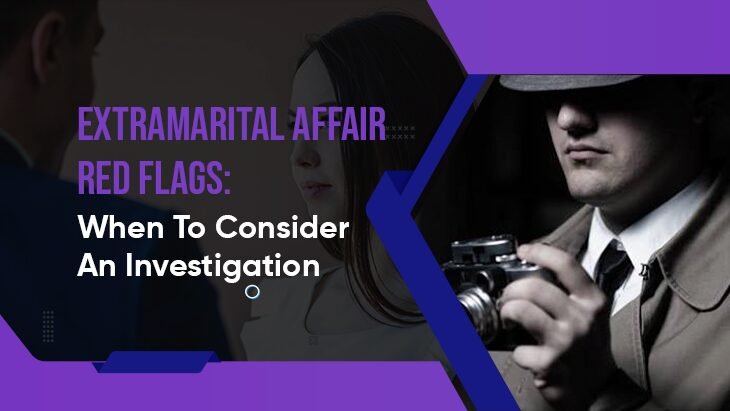Confidentiality is not only a professional courtesy in private investigations; rather, it is the foundation of the entire investigation process. The integrity of an investigation hinges on its ability to protect confidential information and ensure the confidentiality of all case details. Ensuring anonymity is essential for the case’s effectiveness and the safety of all parties involved, regardless of the nature of the investigation—marriage-related, business-related, or legal.
The Importance of Confidentiality in Private Investigations
1. Preserving client confidentiality
Protecting the client’s privacy is the key justification for keeping private investigations secret. Clients frequently hire a private investigator to handle delicate matters they wish to remain confidential. This includes suspicion of infidelity, financial misbehavior, or legal difficulties. Private investigators protect their clients’ reputations, both personally and professionally, by maintaining the confidentiality of the investigation’s details.
For instance, if a business hires a private investigator to investigate employee claims of wrongdoing, disclosing information from the investigation could damage the business’s reputation. It is imperative to protect the privacy of the parties involved in order to prevent needless harm to relationships and the company’s reputation.
2. Guaranteeing Precise Outcomes
Maintaining confidentiality is also essential to guaranteeing the accuracy of the findings. Keeping information about their investigations private allows investigators to work independently and impartially. If the subject of the investigation learned about the scrutiny and changed their conduct or destroyed evidence, it could jeopardize the success of the inquiry.
For instance, if the accused knows they are under investigation for financial misbehavior or fraud, they may attempt to alter or hide financial data. By keeping information private, you may help guarantee that the investigation can continue without hindrance and that the results are accurate and trustworthy.
3. Ethical and Legal Responsibilities
Confidentiality is a legal and moral need for private investigators. The majority of governments have stringent regulations controlling the handling of sensitive data and privacy. Breaking these laws can have negative effects on the investigator’s professional status in addition to having legal ramifications.
Private investigators have an ethical obligation to uphold the values of caution and regard for client privacy. This preserves the integrity of the industry while also fostering client trust. Maintaining confidentiality is crucial for upholding professional standards and ensuring privacy in the investigation.
4. Avoiding unwanted stress
Maintaining confidentiality helps to avoid unnecessary worry for all parties involved. Information leaks can make an investigation, which can already be a very stressful process, even more stressful. The discreet handling of their personal affairs can alleviate clients’ stress and provide them with peace of mind.
By keeping the investigation’s subjects anonymous, you can prevent unjust judgment or stigmatization of them before the investigation’s conclusion. This is especially crucial in delicate situations where people’s reputations and private lives are at risk.
5. Establishing Credibility and Trust
A private investigator’s reputation is built on their tactful case management. By consistently upholding confidentiality, investigators gain the confidence of their clients and the community at large. This trust is critical to gaining future business and maintaining a stellar professional reputation.
Additionally, maintaining confidentiality raises the investigator’s credibility. An investigator with a reputation for upholding ethics and confidentiality is more likely to gain the trust of clients and other stakeholders. This trust can greatly influence an investigator’s success and advancement.
Putting Confidentiality Measures in Place
1. Secure channels for communication in Private Investigations
Ensuring the use of encrypted means for all correspondence is crucial for maintaining confidentiality. Using secure file-sharing services, encrypted emails, and private phone numbers are a few examples of this. It is imperative for investigators to guarantee the secure storage of any sensitive material, limiting access to only authorized people.
2. Private Record Information
Careful handling of an investigation’s paperwork is necessary. This entails protecting digital information with a password and safely keeping hard copy documents in locked cabinets. Only individuals actively involved in the investigation should have access to these documents.
3. Confidentiality Clauses
Non-disclosure agreements (NDAs) may be required in particular circumstances to maintain secrecy. These contracts can provide an extra layer of security by requiring parties to maintain information confidentiality. We should apply NDAs carefully and in compliance with the law.
4. Instructions and Guidelines
Private investigation companies should put policies and training programs in place to make sure that all employees know how important it is to maintain confidentiality and follow best practices. Frequent training can assist in reiterating the value of secrecy and keeping investigators informed about pertinent ethical and legal requirements.
5. Making moral choices
It is important for investigators to receive ethical decision-making training when it comes to managing sensitive data. This entails determining the possible repercussions of sharing information and making sure that any actions taken adhere to professional norms and client expectations.
Difficulties in Preserving Confidentiality in Private Investigations
1. Risks Associated with Technology
The hazards to confidentiality have increased with technological advancements. Hacking, data breaches, and illegal digital access can jeopardize the security of investigative information. To guard against these threats, investigators need to maintain their vigilance and employ the most recent security techniques.
2. Incidental disclosure
There is always a chance of unintended information leakage, even with the greatest of intentions. This can happen when someone accidentally strikes up a conversation, handles paperwork carelessly, or miscommunicates. We must take protective measures to mitigate these risks and promptly address any potential breaches.
3. Finding a Balance Between Disclosure and Privacy
In some situations, it may be necessary to balance transparency and secrecy. For instance, when presenting results to clients or legal authorities, investigators must ensure proper handling of sensitive information and only share it with those who need to know.
In summary
In private investigations, upholding legal and ethical standards, safeguarding client privacy, and ensuring accurate results all depend on the fundamental principle of confidentiality. A private detective agency in India can preserve their professional reputation, gain customers’ trust, and successfully handle the intricacies of delicate situations by putting strict confidentiality safeguards in place.
In a society where information is readily available and privacy issues are paramount, secrecy is more important than ever. Private investigators must always adapt to new situations and technological advancements while remaining committed to upholding the integrity of their work and their customers’ anonymity.



